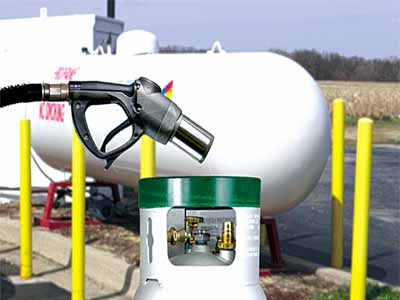
Obiageri Amaliri, Oghenekevwe Ovbije
Houston, TX — Despite its vast natural gas reserves, Nigeria remains locked in an energy paradox: over 60% of households still rely on biomass (firewood and charcoal) or kerosene for cooking, while public transport is almost entirely powered by imported diesel and petrol. This reliance not only strains household incomes and public health but also keeps the country vulnerable to global fuel price shocks. In contrast, countries like India, Pakistan, and Brazil have made major strides in mainstreaming compressed natural gas (CNG) and liquefied petroleum gas (LPG) into their transportation and domestic energy systems. For Nigeria to truly transition away from diesel and firewood, gas must move from being a resource for export terminals to becoming the fuel of everyday life powering homes, vehicles, and businesses.
Nigeria’s Missed Domestic Opportunity
Less than 10% of Nigeria’s gas output is used domestically. Piped gas to homes remains a rarity, confined to a few estates in Lagos and Port Harcourt. Over 40 million households rely on firewood, contributing to respiratory illnesses and deforestation. Meanwhile, over one million commercial vehicles in Nigeria still run on diesel and PMS, despite the country’s stated goal of transitioning to CNG. While the National Gas Expansion Programme (NGEP) and Decade of Gas Initiative have outlined pathways, neither includes enforceable targets, rollout timelines, or financing frameworks to shift households and vehicles to gas at scale. The result is a policy vision without an implementation engine.
What “National Fuel” Should Look Like
Transforming gas into a national fuel is more than rebranding, it demands a coordinated investment, regulatory, and behavioural shift across sectors.
For Households:
- Urban gas-to-home rollout: Federal and state governments must partner with local distribution companies to install mini-pipeline systems for high-density areas. A phased plan to reach 30% of urban homes by 2028 and 60% by 2035 would be realistic.
- Rural gas access via LPG: Micro-distribution of LPG cylinders, backed by rural cooperatives and clean cooking programs, can replace biomass and kerosene dependence.
- Consumer education and subsidy: Incentivize first-time adoption via stove discounts, connection vouchers, and public awareness campaigns.
For Transportation:
- Mass transit conversion: At least 50% of Bus Rapid Transit (BRT) fleets in Lagos, Abuja, Kano, and Port Harcourt should transition to CNG by 2028.
- Private vehicle conversion scheme: Offer interest-free loans or grants for conversion kits and incentivize local assembly of CNG-compatible vehicles.
- CNG station infrastructure: Mandate that every local government area (LGA) hosts at least one public CNG refuelling station within 5 years.
For Small Industries and Public Institutions:
- Replace Diesel Generator: Public hospitals, universities, and government buildings should adopt micro-LNG or CNG generators under a nationwide energy independence directive.
- Market stimulation: Offer gas pricing discounts to SMEs that convert operations from diesel to CNG or gas-fired boilers.
Benefits Beyond Fuel
This is not just an energy switch it is a development strategy. Transitioning households and vehicles to gas has deep macroeconomic and environmental implications:
- Foreign exchange savings: Replacing imported PMS/diesel with domestic gas could save Nigeria $8–10 billion annually.
- Public health improvement: Reduced indoor air pollution from firewood and kerosene could save thousands of lives annually.
- Job creation: Gas value chain expansion including refuelling infrastructure, conversion kits, gas appliances, and maintenance could generate over 500,000 skilled and semi-skilled jobs.
- Climate resilience: Lower emissions from gas usage would help Nigeria meet its Nationally Determined Contributions (NDCs) under the Paris Agreement.
From Vision to Velocity
Nigeria has what many countries do not, namely reserves, demand, and demographic scale. But until gas becomes a tangible, everyday fuel for Nigerians, the promise of energy transition will remain theoretical. The next phase must focus not on more declarations, but on conversions from diesel to gas, from kerosene to flame-retardant stoves, from imports to domestic energy security. If Nigeria gets this right, gas will not just be a transition fuel it will be the foundation of a healthier, wealthier, and cleaner future.
This article was originally posted at sweetcrudereports.com
Be the first to comment